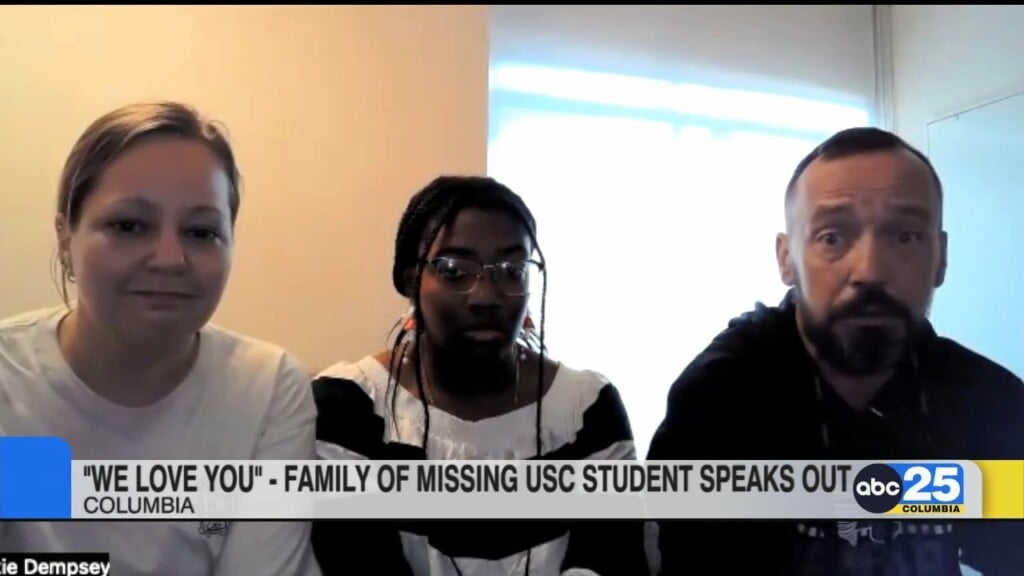SC’s week of legislative action
COLUMBIA, S.C. (AP) — The 12th week of the legislative session:
___
GOVERNOR SUED: House Democrats on Tuesday called on South Carolina Gov. Nikki Haley to make public any ethics complaint that may be filed against her, using her own words to make their point. Haley spokesman Rob Godfrey countered she’d do that only if the House opens up all ethics complaints, past and future, against its members. He called the issue a waste of time. But Democrats said the Republican governor who campaigned on transparency should let the public know if an investigation is underway. State law bars the release of information on an ethics complaint, including whether one even exists, unless the accused person waives confidentiality. On March 21, a circuit court judge dismissed a lawsuit accusing Haley of breaking ethics laws while she was a legislator, saying such issues should be handled by either state ethics officials or a legislative panel. House Minority Leader Harry Ott quoted Haley’s stump speeches during her 2010 campaign, in which she called sunshine the best disinfectant. He also quoted Godfrey saying his boss is working to have the “most transparent administration in history.”
___
TAX CUTS: The House budget-writing committee advanced bills Tuesday that would cut personal income taxes and what small businesses pay on their profits in South Carolina. The Ways and Means Committee tweaked the bill that collapses personal income tax brackets, so that poor residents wouldn’t pay more. Under the change, all tax filers who pay taxes would get a modest break, expected to average less than $100 per filer, reducing state revenues by $78 million. The other advanced bill would reduce the income taxes paid by small businesses from 5 percent to 3 percent over four years. Budget advisers estimate the cut would reduce state revenue by $60 million annually by 2015. The breaks go to businesses organized as limited liability companies, S corporations and sole proprietorships, which pay profits as personal income.
___
UNEMPLOYMENT BENEFITS ENDING: Almost 79,000 unemployed South Carolinians will stop receiving federally funded weekly jobless benefits by year’s end, state unemployment officials said Wednesday, because the state’s jobless rate is improving and a new federal law is phasing out emergency benefits. South Carolina workers who lost their jobs have been eligible for 78 weeks of payments: up to 20 weeks through the state program, then 42 weeks of federally paid emergency benefits that Congress initially approved in 2008, plus 16 more weeks of federally funded extended benefits because of the state’s chronically high jobless rate. But starting Jan. 3, the maximum will be the five months of employer-paid benefits governed by state law. The 6,500 people who fall in that 16-week extended category will stop getting checks the week ending April 7. An additional 72,500 who have been without a job for between 20 and 62 weeks will start coming off the rolls Saturday under the law Congress passed in February.
___
UNEMPLOYMENT-DRUG TESTS: Someone collecting unemployment would lose their benefits if they fail or refuse to take an employer’s drug test under a bill approved Thursday by the South Carolina House. The House voted 70-24 on a bill allowing an employer to report such a failure to the state’s unemployment agency. It does not require them to do so. The measure represents a back-door way of yanking unemployment benefits for failed drug tests, involving only drug tests that businesses require as a condition of employment. Democrats argued it’s wrong to take a benefit away based on someone’s refusal, saying that could be due to offense at the requirement. But the main sponsor, Rep. Eddie Tallon, said people receiving jobless benefits are supposed to be ready and able to work, and if they lose a job offer because of drugs, they shouldn’t continue to collect.
___
UNEMPLOYMENT-MISCONDUCT: The Senate approved a bill that would automatically deny benefits for misconduct. The state’s unemployment agency paid out $50 million in benefits to fired workers last fiscal year. Their benefits are now reduced depending on the type of misconduct and severity, from five weeks up to complete disqualification of all 20 weeks. State law says workers fired for gross misconduct such as theft and drug use can’t get benefits. But Sen. Kevin Bryant, R-Anderson, says the agency isn’t following that law and is abusing its discretion on the range of weeks.
___
PRIVATE SCHOOL CHOICE: After eight years of fighting, proponents of helping parents send their children to private schools won approval Wednesday in the South Carolina House. The House voted 65-49 on a measure supporters say represents a home-grown version of a long-divisive issue fueled by out-of-state money. The bill would allow parents to take a $4,000 tax deduction per child for tuition paid, $2,000 for homeschool expenses and $1,000 per child who attends a public school outside the district where he or she lives. It would allow people to claim tax credits for donating to newly created nonprofits giving scholarships to poor and disabled students. Budget advisors expect the bill to reduce state revenues by $37 million in 2012-13. The measure represents the fifth version of an idea that has died repeatedly since former Gov. Mark Sanford rolled out the first plan in February 2004.
___
CERVICAL CANCER VACCINE: Seventh-grade students in South Carolina could get a free vaccine to prevent a sexually transmitted, cancer-causing virus under a bill advanced Thursday by a House panel. The measure provides the option to students who are entering the seventh grade. Informational brochures on the vaccine for human papillomavirus, known as HPV, would be provided to parents of sixth-graders. Rep. Bakari Sellers said his bill is about saving lives and money. The cost of providing the vaccine would be far less than taxpayers paying later through Medicaid and emergency room visits to treat cervical cancer, he said. The Department of Health and Environmental Control estimates that 1,450 students yearly would opt to get the vaccine through the state program, costing about $373,000 plus some minor administrative costs. The panel approved an amendment tying the program’s start to funding. DHEC would not provide the free service until it has the money to do so.
___
OCCUPY COLUMBIA: Gov. Nikki Haley has signed a bill banning camping and sleeping on Statehouse grounds. The Republican governor wasted no time Thursday signing the measure preventing Occupy Columbia from continuing its around-the-clock presence outside the capitol. Her signature came soon after the House gave final approval to the bill. Haley’s spokesman Rob Godfrey says the governor encourages people to speak out, and the bill’s “not intended to stop the will of the people,” but to stop camping. The law contains the same wording as the emergency rule adopted in December by the Budget and Control Board after Haley lost in court. It expired at midnight March 18. Occupy Columbia began its 24-hour protest Oct. 15. Haley ordered protesters to leave Nov. 16, resulting in trespassing charges later dropped and a court fight. They dispersed Dec. 23 after a federal judge validated the emergency rule and returned last week after it expired.
___
LAWSUIT LIMITS: Legislation inspired by the fatal crash of a Spartanburg park train ride last year would allow local governments in South Carolina to choose whether to pay out higher claims than the current state limit of $600,000. The bill endorsed by a state Senate Judiciary subcommittee on Wednesday also ties the $600,000 liability cap to inflation. The bill had originally sought to exclude medical expenses from the cap, but lawmakers opted to instead allow municipal agencies, on their own, to decide if they wanted to set up funds to deal with claims higher than that amount. The discussion began last year after a children’s train ride careened off its tracks at a downtown Spartanburg park and into a ditch, killing a 6-year-old boy and injuring 28 others. Affected families said they face mounting medical bills and are unfairly limited by the state caps that impose the $600,000 total limit regardless of how many people seek to recover money.

